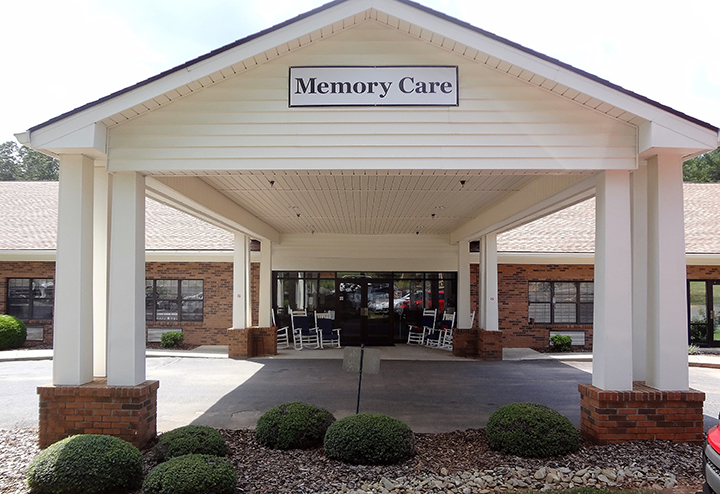Devoted Professionals Offering Alzheimers Care Charlotte for Loved Ones
Devoted Professionals Offering Alzheimers Care Charlotte for Loved Ones
Blog Article
Creating a Safe and Supportive Environment for Alzheimer's Care
The creation of a encouraging and risk-free atmosphere for individuals with Alzheimer's is critical in improving their quality of life. Checking out these multifaceted strategies can expose vital understandings into efficient caregiving methods that may change the day-to-day experiences of both individuals and caregivers.
Recognizing Alzheimer's Demands
Frequently, individuals with Alzheimer's condition display a variety of needs that call for tailored strategies to care. As the condition proceeds, cognitive decline materializes in various ways, impacting memory, reasoning, and also the ability to perform daily activities. Caretakers should recognize these advancing demands to give appropriate assistance and guarantee a better of life for those influenced.
One critical aspect of comprehending Alzheimer's requirements is recognizing the relevance of routine and experience. People typically discover convenience in recognized patterns, which can lower anxiety and confusion. Caregivers must strive to create structured day-to-day routines that incorporate meaningful activities lined up with the person's capabilities and interests.
In addition, effective interaction is paramount. People with Alzheimer's might have a hard time to express themselves or comprehend intricate language. Caregivers need to use basic, clear language, usage non-verbal hints, and method energetic paying attention to foster understanding and link.
Finally, emotional and social demands can not be ignored. Providing opportunities for social interaction and maintaining connections can substantially improve emotional well-being. Caregivers need to urge interaction in neighborhood activities or family members events, advertising a sense of belonging and function. Comprehending these varied requirements is crucial for creating a supportive treatment setting.
Designing a Safe Home
Producing a safe home for individuals with Alzheimer's disease is vital to reducing threats and advertising self-reliance. Make sure that pathways are well-lit and clear, as proper illumination minimizes disorientation and boosts flexibility.
Incorporating adaptive features is additionally important. Install grab bars in restrooms and near staircases, and take into consideration utilizing non-slip mats in damp areas. Additionally, using different shades for floorings and wall surfaces can help in identifying rooms, helping to reduce confusion.
Familiarity is important for people with Alzheimer's. Customizing the environment with acquainted items and photos can reinforce a sense of belonging and safety - Alzheimers Care Charlotte. It is also advantageous to have a designated area for day-to-day activities, such as analysis or crafting, which can supply framework to their day
Finally, applying a safe outdoor space enables for risk-free expedition while connecting with nature. By attentively developing the home setting, caregivers can substantially enhance the lifestyle for individuals living with Alzheimer's illness.
Enhancing Communication Skills

Non-verbal interaction, including faces, gestures, and touch, plays a critical function in communicating compassion and understanding. Maintaining eye contact and a tranquil attitude can enhance the comfort level of the person, advertising a feeling of safety and security.
In addition, it is very important to exercise energetic listening. This entails being fully present, revealing perseverance, and enabling the individual to express themselves without disturbance. Repeating might be required; caretakers must be prepared to take another look at topics or concerns, as people with Alzheimer's might battle with memory recall.
In addition, using visual help or signs, such as photographs or acquainted objects, can promote recognition and involvement. Ultimately, improving interaction abilities is about building trust and creating a setting where people really feel listened to, valued, and understood, thus enhancing their lifestyle.
Encouraging Social Communication
Promoting meaningful social communications can substantially boost the well-being of individuals with Alzheimer's disease. Involving with others not only assists combat sensations of isolation but likewise stimulates cognitive feature and emotional health. Structured social tasks, such as group crafts, arts and games, or songs treatment, develop chances for residents to attach with peers and caretakers, which can bring about enhanced state of mind and lowered anxiousness.
Creating a welcoming environment that urges socialization is vital. This can be accomplished by arranging communal rooms that facilitate interaction, such as comfortable seating locations or task rooms. Furthermore, incorporating culturally pertinent and familiar tasks can urge and trigger memories engagement, allowing individuals with Alzheimer's to really feel more linked to their previous experiences.
In addition, caregivers ought to be educated to acknowledge and promote social interaction among locals. By prioritizing social communication, we can dramatically enhance the lives of those living with Alzheimer's, promoting a sense of neighborhood and belonging.
Supporting Caretaker Well-being

To support caregivers, organizations need to offer normal training and academic resources to boost their understanding of Alzheimer's condition and caregiving strategies. Supplying access to break care solutions permits caregivers to take required breaks, lowering stress and anxiety and fatigue - Alzheimers Care Charlotte. Additionally, promoting an area through support teams can assist in emotional sharing and the exchange of useful recommendations among caretakers, producing a network of mutual support
Psychological wellness resources, such as therapy solutions, can additionally be crucial in resolving the emotional toll caregiving can take. By prioritizing caretaker health, we produce an even more lasting caregiving setting that not just benefits the caretakers themselves but also improves the general top quality of care gotten by individuals with Alzheimer's. Ultimately, supporting caregivers is a vital part in cultivating a reliable and caring treatment setup.
Verdict
In final thought, the development of a supportive and secure setting for individuals with Alzheimer's is important to improving their high quality of life. By focusing on safety and security through thoughtful design, cultivating emotional wellness check my source with acquainted aspects, and advertising additional reading engagement with structured routines, caretakers can significantly affect the overall experience of those affected by this problem. Additionally, supporting caretaker wellness is essential, as it inevitably adds to a more thoughtful and reliable treatment atmosphere.
Repetition might be needed; caretakers ought to be prepared to revisit topics or inquiries, as people with Alzheimer's may struggle with memory recall.

Report this page